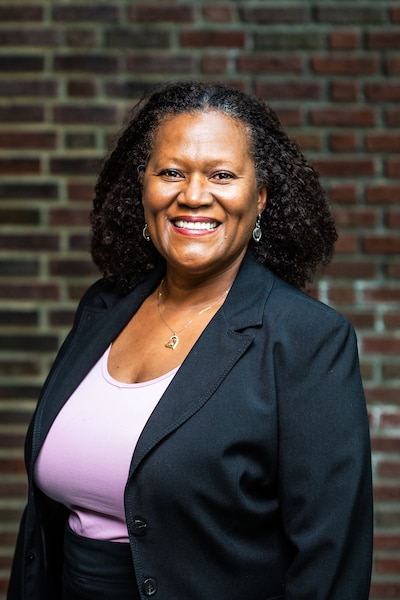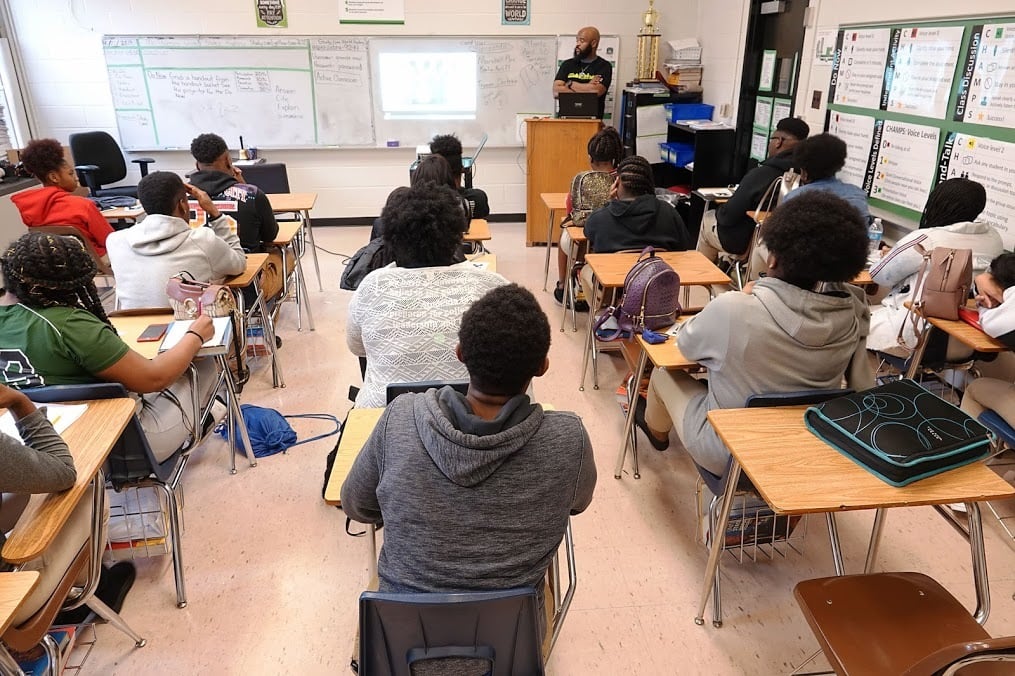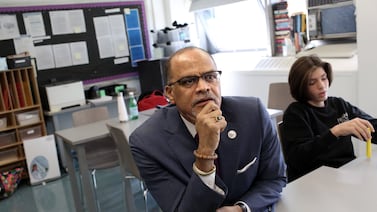Sign up for Chalkbeat Tennessee’s free daily newsletter to keep up with Memphis-Shelby County Schools and statewide education policy.
Tennessee has appointed a school improvement leader to manage all of its school turnaround work under a powerful new position that will touch urban, suburban, and rural districts.
Bren Elliott, who was a Nashville school administrator from 2001 to 2007 and has been school improvement chief for District of Columbia Public Schools since 2017, will begin her job as state turnaround superintendent on Tuesday.
The Tennessee Department of Education announced Elliott’s hire on Thursday, three years after launching its first search to fill the job. The position is considered key to jump-starting school improvement work in Tennessee, which has helped pioneer several turnaround models with limited success.

She is among the first major hires for Education Commissioner Lizzette Reynolds, who started her job on July 1 with an early focus on school accountability.
Elliott’s experience in school improvement “will be an asset to the state and provide intentional support to these schools to ensure all students receive a high-quality education,” Reynolds said in a statement.
Chief among Elliott’s new responsibilities will be overseeing the Achievement School District, the state’s most aggressive lever for improving low-performing schools. The state-run district, which takes over schools and assigns them mostly to charter operators to manage, has itself struggled, with little to show so far for its turnaround efforts over the past decade.
Elliott also will be responsible for supervising interventions for all 95 of the state’s so-called priority schools — those that score academically in the bottom 5% — as well as schools that need targeted support due to large achievement gaps among groups of historically underserved students such as English language learners, students with disabilities, or those from low-income families.
In all, nearly 300 Tennessee schools fall in those categories.
She will also work closely with local leaders of district-level turnaround initiatives, from the Innovation Zone in Memphis and Nashville to the Partnership Network in Chattanooga.
“I look forward to working with our schools most in need of support and intervention, including the Achievement School District, to improve student achievement and help all students in these schools succeed,” said Elliott.
Turnaround efforts are at a crossroads
For many local school improvement leaders, the education department’s naming of a statewide turnaround chief came as a surprise. Under Gov. Bill Lee, the department launched multiple searches to fill the job, even naming three finalists in 2021. But those searches stalled due to the pandemic, budget issues, and uncertainties about what direction the state wanted to take its turnaround work.
Victoria Robinson, the department’s spokeswoman, said making the hire was a priority for Reynolds.
“Dr. Elliott was identified several months ago as a potential candidate, and since that time has completed the interview, hiring and other processes with the state, including with Commissioner Reynolds and TDOE leadership,” Robinson said.
Reynolds has not said what she has planned for the ASD and other turnaround work. State law gives the commissioner the authority to identify schools for state takeover and place them in the ASD.
Under Reynolds’ predecessor, Penny Schwinn, the department unveiled a new vision for the ASD that would have had a “smaller footprint” and new takeovers, but none of the updates materialized.
The ASD, which launched in 2012, has been mostly a disappointment. Under charter management, its schools typically performed no better than low-performing schools receiving no intervention. As a result, Tennessee has not taken control of a neighborhood school since taking over four in Memphis in 2016.
Most of the ASD’s schools are Memphis, with a few in Nashville, but the district has shrunk by more than half to just over a dozen schools in recent years. A few have closed, some have returned to their local districts, and many that have shown the most improvement have moved under the oversight of a new state commission for public charter schools.
A lack of steady leadership in the ASD has complicated the complex exit process for schools once their charter contracts expire. The district’s last leader, Lisa Settle, departed in summer 2022. Since then, other staff with the education department have managed it.
Elliott has Tennessee ties
Elliott, who is a member of Chiefs for Change, an influential national education leadership network, is a native of North Carolina and no stranger to Tennessee.
She was a teacher and administrator in Nashville public schools for 15 years, and spent her last year at the district as a director focused on priority schools. She earned her master’s degree from Tennessee State University.
In 2020, Elliott lost a bid to become director of Metro Nashville Public Schools to Adrienne Battle, who was the interim leader at the time. This summer, Elliott was a superintendent finalist for Huntsville City Schools in Alabama, which also picked its interim leader instead.
Before joining the Washington, D.C., school district, she spent eight years as an administrator for two school districts in North Carolina, where she focused on support services for students in Wake and Guilford counties.
As the state’s overarching turnaround leader, Elliott also will work with local officials who manage district-run turnaround models.
Memphis-Shelby County Schools operates the Innovation Zone with funding assistance from the state. The so-called iZone gives its schools autonomy over curricular, financial, scheduling, and staffing decisions, similar to charter schools.
State officials also have worked closely with Hamilton County Schools’ Partnership Network, a model that seeks greater collaboration between the state and the local district.
But the ASD is the state’s most scrutinized turnaround program.
This spring, state Rep. Antonio Parkinson received bipartisan support for a bill that would revamp the state’s turnaround model and halt school takeovers altogether.
On Thursday, the Memphis Democrat said the department needs a school turnaround leader, whether his legislation passes or not next year.
“We need to be utilizing and putting our efforts and resources behind those practices that actually work,” Parkinson said, “and stop feeding millions and millions of dollars into the practices that didn’t work.”
Laura Testino covers Memphis-Shelby County Schools for Chalkbeat Tennessee. Reach Laura at LTestino@chalkbeat.org.
Marta Aldrich is a senior correspondent and covers the statehouse for Chalkbeat Tennessee. Contact her at maldrich@chalkbeat.org.








